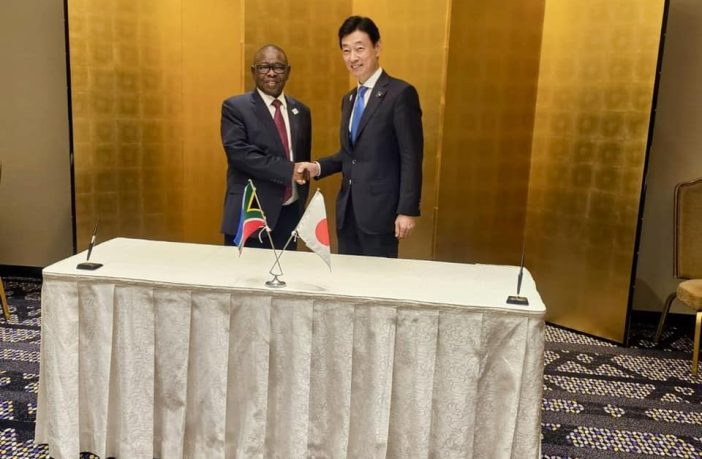- South Africa’s Minister of Higher Education, Science and Innovation, Dr Blade Nzimande has confirmed that the country remains committed to global cooperation on large scale production and utilisation of hydrogen.
- On Monday the minister also announced the signing of the Memorandum of Cooperation with the Minister of Economic, Trade and Industry of Japan, Mr Yasutoshi Nishimura for mutual hydrogen techology and industry development.
“South Africa sees the hydrogen economy as an opportunity to use science, technology and innovation to reindustrialise whilst reducing the carbon intensity within the economy, leveraging on our abundant mineral and natural resources such as solar and wind” said Nzimande. He was speaking at 6th Hydrogen Energy Ministerial Meeting.
He confirmed that since participating in the HEMM in 2021, the Cabinet approved the National Hydrogen Society Roadmap (HSRM). The HSRM is South Africa’s overarching policy document that articulates the country’s aspirations in developing a local hydrogen economy that is globally competitive.
The HSRM has clear targets and key actions to achieve them in the short- term (2021 to 2024), medium-term (2025 to 2030) and long-term (2030 to 2040). The following six outcomes are part of our goals:
- The decarbonisation of transport sectors, such as heavy-duty vehicles, shipping, aviation, and rail.
- The decarbonisation of energy intensive industry, such as iron & steel, chemicals, mining, refineries, cement.
- The creation of an export market for green Hydrogen and ammonia.
- Green and enhanced power with a focus on buildings.
- Creation of a manufacturing sector for hydrogen products and components; and
- A responsible and phased transition from grey to blue to green hydrogen.
The Platinum Valley Initiative (PVI), which is South African version of the Hydrogen Valley, is one of the identified catalytic projects.
The PVI focuses on hydrogen production, establishment of local manufacturing capabilities, human resources development and support for a just energy transition through decarbonisation of various industrial and transport sectors. The PVI is also expected to catalyse large infrastructure development and facilitate large-scale hydrogen trade and to stimulate a local hydrogen economy.
To support the implementation of the HSRM, the South African Government continues to achieve the above objectives explore local and international and promote the local manufacturing of locally developed intellectual property (IP) and the integration of hydrogen and fuel cell technologies in various sectors of the economy:
Nzimande said the agreement with Japan would allow for partnerships to facilitate training and development in critical and technical skills needed for the growing hydrogen economy, as well as developing necessary standards for hydrogen production, transportation, and regulatory frameworks.
Author: Bryan Groenendaal















